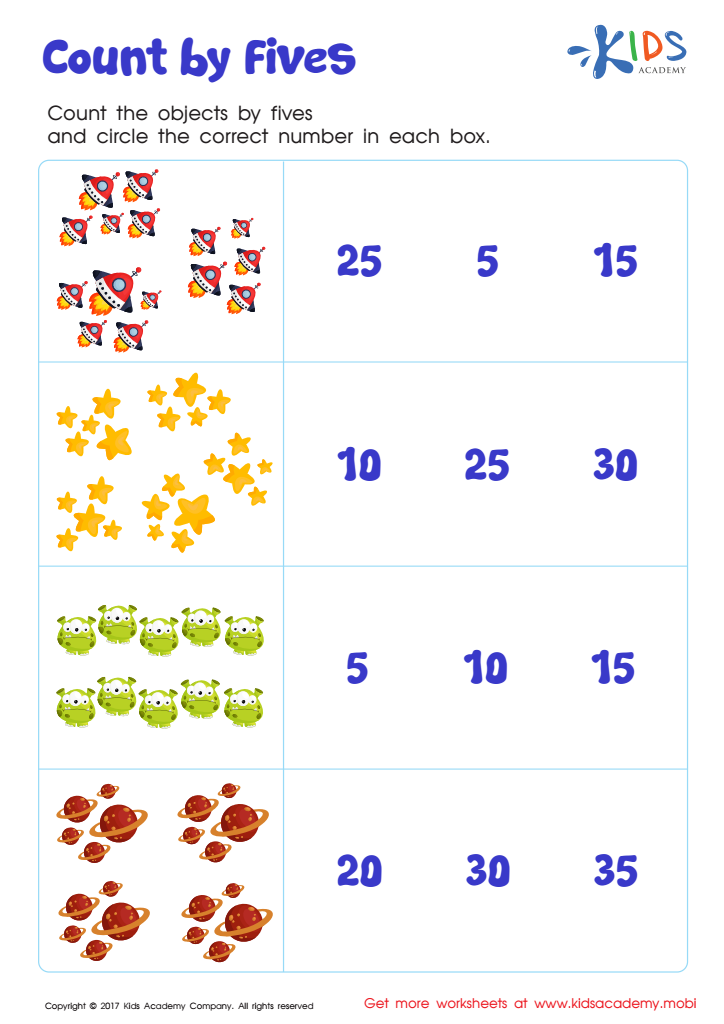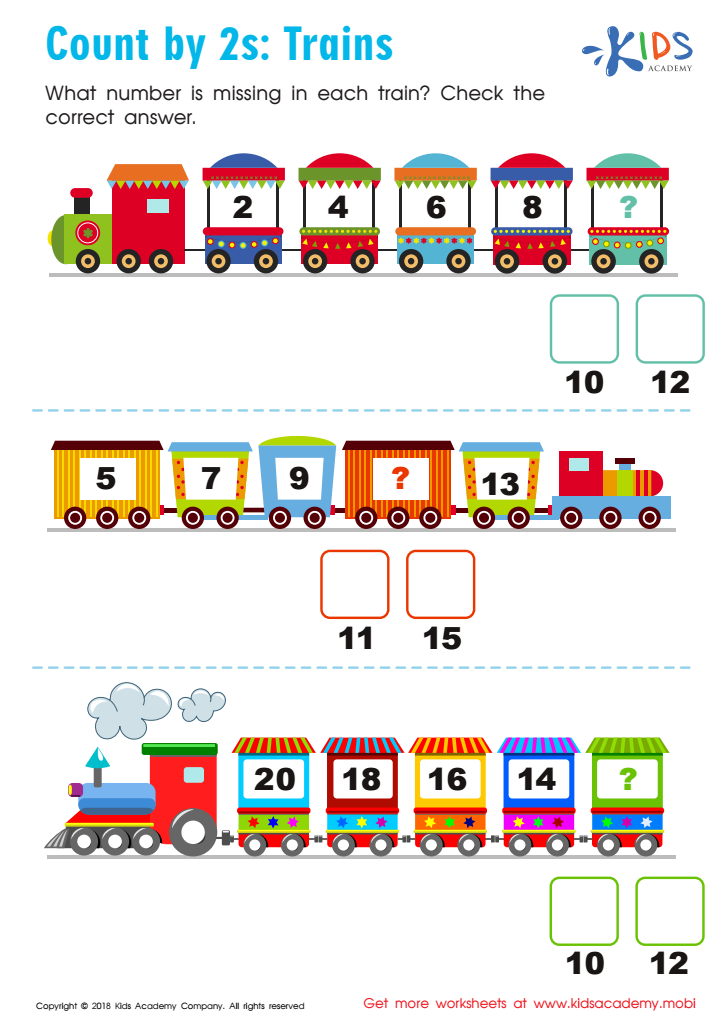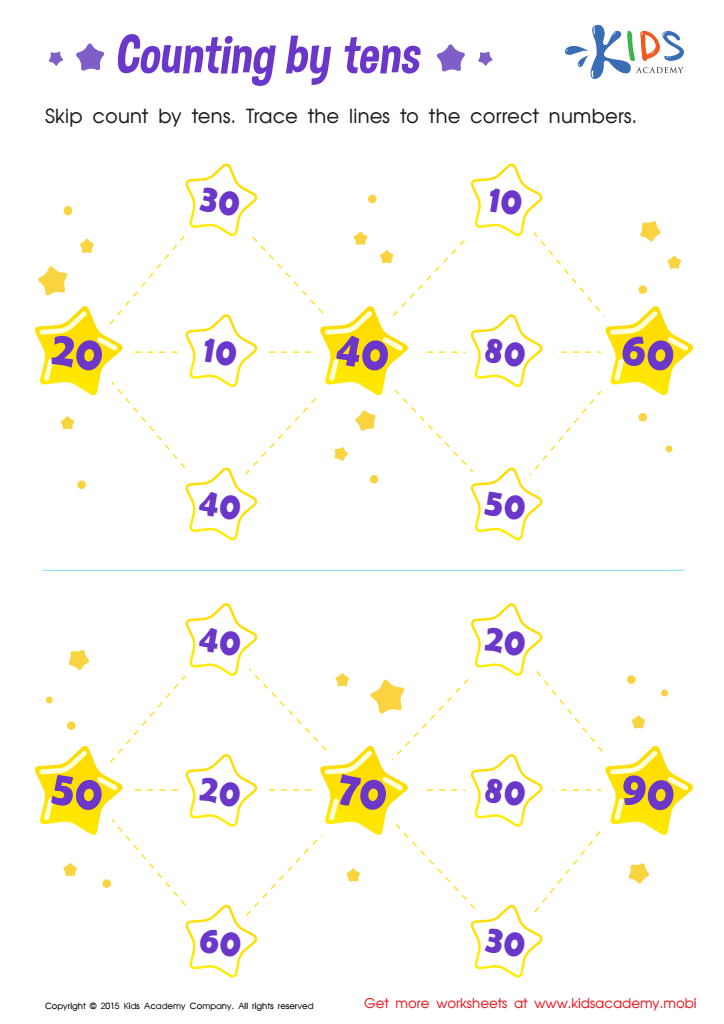Number Recognition Skip Counting Worksheets for Ages 3-7
3 filtered results
-
From - To
Enhance your child's math skills with our number recognition skip counting worksheets, perfect for ages 3-7! Designed to make learning fun, these engaging worksheets help young learners master essential counting skills through skip counting. Children will enjoy interactive activities that reinforce their understanding of numbers and patterns, fostering confidence and fluency in early mathematics. Our carefully crafted exercises are ideal for homeschoolers, preschoolers, and kindergarteners, making them a valuable resource for educators and parents alike. Start your child's journey to mathematical mastery today with our vibrant and playful skip counting worksheets, ensuring they build a strong foundation in number recognition!


Skip Counting by 5s: Space Math Printable


Count by 2's: Trains Worksheet


Learn Dozens: Counting by Tens Printable
Parents and teachers should prioritize number recognition and skip counting for children aged 3-7 because these skills form the foundation for more complex mathematical concepts. Number recognition enables children to identify and understand numbers, which is crucial for success in counting, addition, and ultimately higher-level math. By consistently encouraging this early recognition, children build confidence in their numerical abilities, paving the way for a positive attitude toward math as they progress in their education.
Skip counting, the ability to count by specific intervals (e.g., twos, fives, or tens), further enriches a child's numerical understanding. It introduces patterns and promotes strategizing in number manipulation, laying the groundwork for multiplication and division. These skills foster critical thinking and problem-solving abilities. Furthermore, skip counting enhances children’s memory and auditory skills as they learn sequence and rhythm in numbers.
In a broader context, developing these math skills at an early age cultivates a strong cognitive foundation. This not only aids academic achievement across the curriculum but encourages persistence and resilience. Parental involvement or teacher guidance in these areas supports a child's learning journey, making math an engaging and approachable subject, which is essential for lifelong learning.
 Assign to My Students
Assign to My Students
















